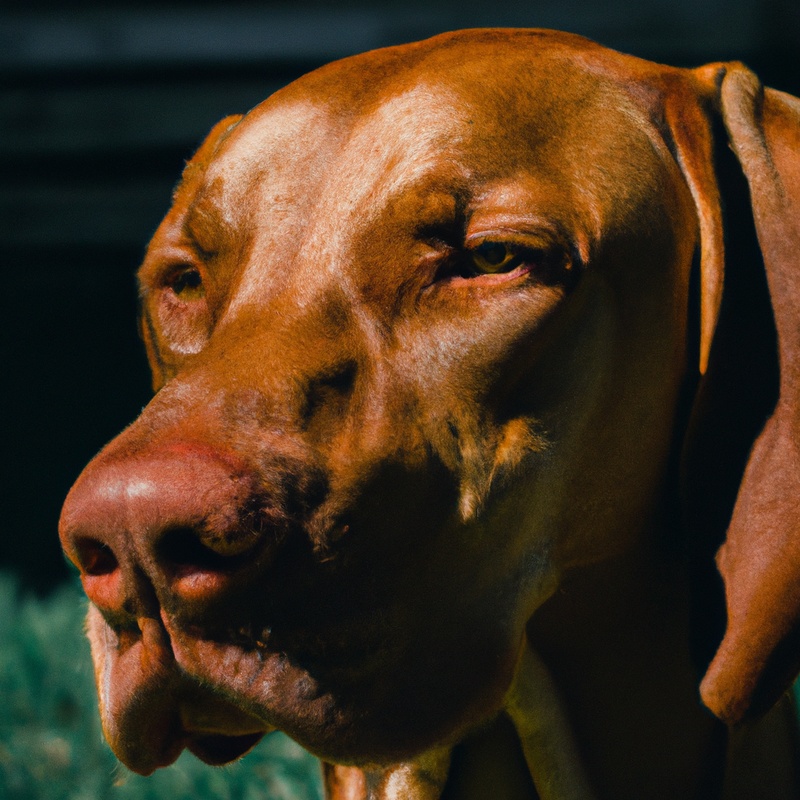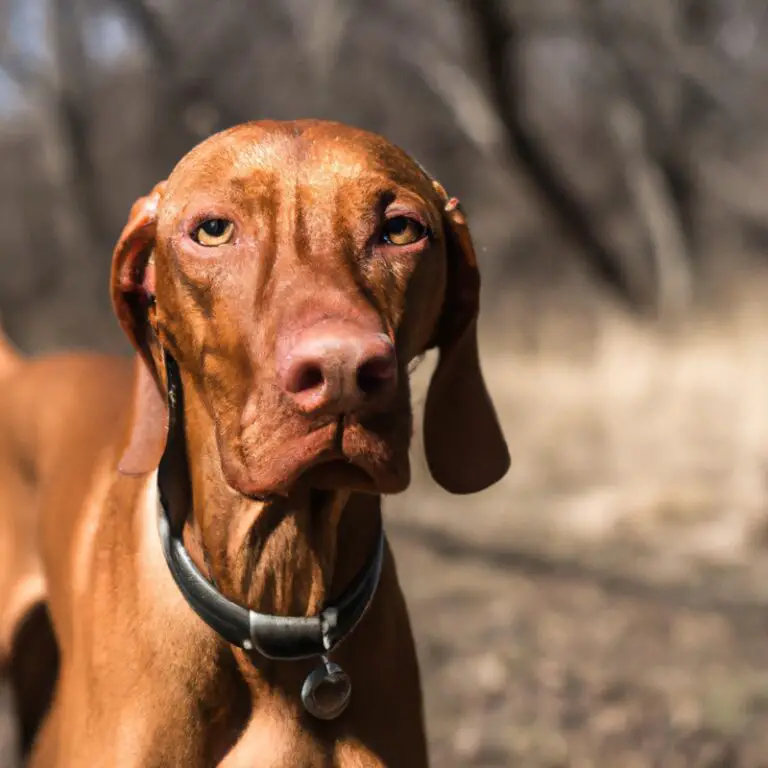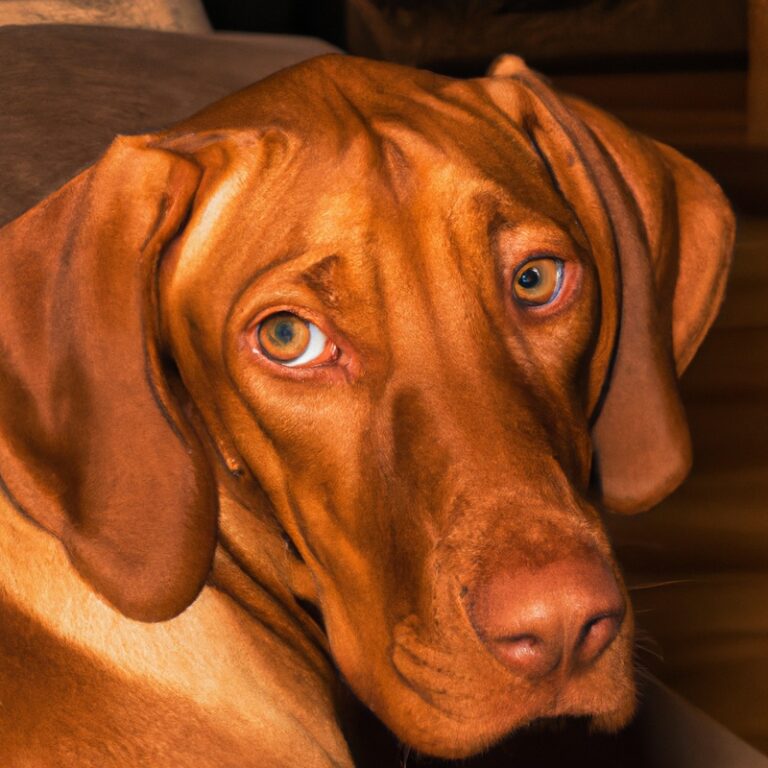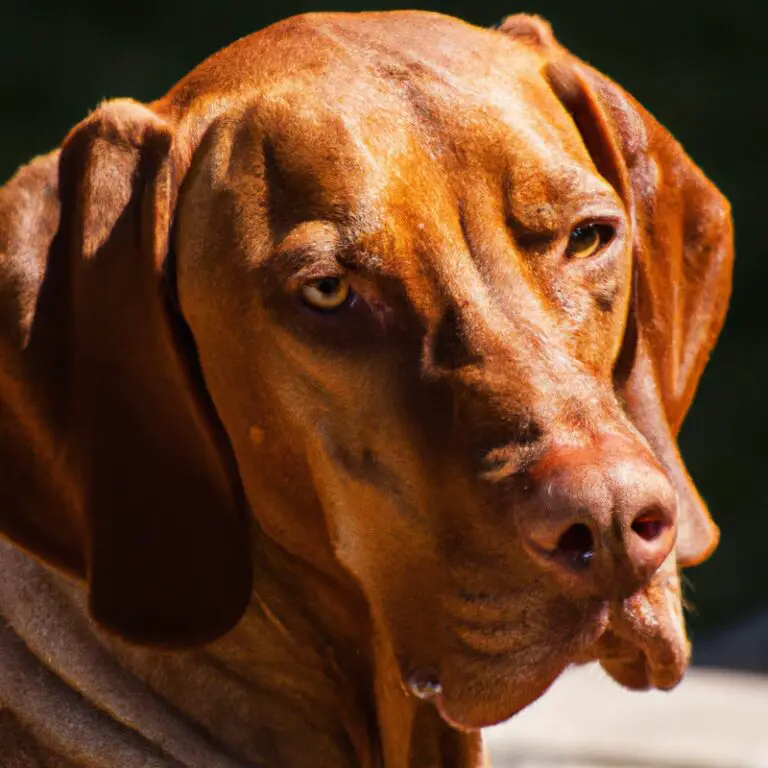What Are Some Common Vizsla Dental Problems And How To Prevent Them?
Key Takeaways:
- Poor oral hygiene can lead to dental problems in Vizslas, including gum disease and tooth decay.
- Regular brushing and professional dental cleanings are vital for preventing dental issues in Vizslas.
- Chewing on appropriate toys and dental treats can help promote good dental health in Vizslas.
- Early detection and treatment of dental problems can help minimize their impact on a Vizsla’s overall health.
Hey there, Vizsla lovers! Are you a proud parent of a lovable Vizsla? Well, just like us, our furry friends need proper dental care to keep their pearly whites healthy and sparkling.
In this blog, I’m going to dive deep into the common dental problems that Vizslas often face and share some essential tips on how to prevent them.
From dental plaque and gum disease to tooth fractures and oral tumors, we’ll cover it all! So grab a cuppa and get ready to become a dental pro, ready to keep your Vizsla’s smile shining bright. Let’s get started!
| Dental Problem | Symptoms | Prevention |
|---|---|---|
| Gum disease (Periodontitis) | Bad breath, swollen gums, bleeding gums, loose teeth |
|
| Tooth decay (Caries) | Toothache, sensitivity, visible black/brown spots on teeth |
|
| Broken or fractured teeth | Pain while eating, pawing at mouth, chipped/cracked tooth |
|
| Plaque and tartar buildup | Brownish deposits on teeth, bad breath, inflamed gums |
|
Common dental problems in Vizslas
Dental plaque and tartar buildup
Dental plaque and tartar buildup are common dental problems in Vizslas. Plaque is a sticky film that forms on the teeth, while tartar is hardened plaque.
These issues can lead to bad breath, gum disease, and tooth decay.
To prevent plaque and tartar buildup, it is important to brush your Vizsla’s teeth regularly with a dog-friendly toothpaste and toothbrush. Additionally, providing them with dental chews and toys can help reduce plaque.
Regular dental check-ups with a veterinarian are also recommended to catch any issues early.
Gum disease (Periodontitis)
Gum disease, also known as periodontitis, is a common dental problem in Vizslas.
It occurs when plaque and tartar build-up on the teeth, leading to inflammation of the gums.
If left untreated, it can damage the tooth’s supporting structures and even result in tooth loss.
To prevent gum disease in your Vizsla, make sure to brush their teeth regularly, provide dental chews or toys, and schedule regular dental check-ups with your veterinarian.
Tooth fractures and wear
Tooth fractures and wear are common dental problems in Vizslas. These issues can be caused by chewing on hard objects, trauma, or natural wear and tear.
Fractures can result in pain, infection, and difficulty eating.
Regular dental check-ups and prompt treatment are essential. Avoid giving your Vizsla hard toys or bones that can damage their teeth.
Provide them with appropriate chew toys and maintain good dental hygiene by brushing their teeth regularly.
Oral tumors and growths
Oral tumors and growths can be a common issue in Vizslas.
These can manifest as lumps or bumps in the mouth, on the gums, or on the tongue.
It is important to regularly check your Vizsla’s mouth for any unusual growths and to consult with your veterinarian if you notice anything suspicious.
Early detection is key in dealing with these problems.
Treatment options may include surgery, radiation, or chemotherapy, depending on the type and severity of the tumor or growth.
Regular dental cleanings and good oral hygiene can help prevent these issues.
Signs and symptoms of dental problems in Vizslas
Bad breath (halitosis)
Bad breath, or halitosis, can be a common dental problem in Vizslas. It can be caused by various factors, such as poor oral hygiene, gum disease, or dental infections.
Regular brushing of your Vizsla’s teeth and providing dental chews can help prevent bad breath.
Additionally, scheduling regular dental check-ups with your veterinarian is essential for maintaining your Vizsla’s oral health. Remember, a fresh breath is not only pleasant for you, but also important for your furry friend’s overall well-being.
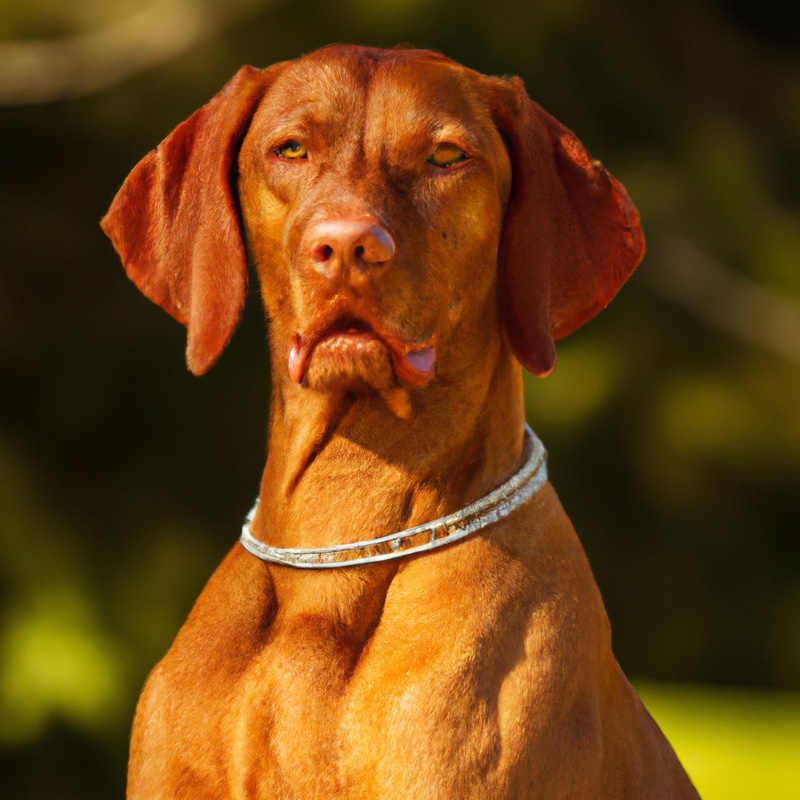
Red, swollen, or bleeding gums
Red, swollen, or bleeding gums in Vizslas can be a sign of various dental problems.
This may include gum disease, tooth infections, or even trauma.
It’s important to pay attention to your Vizsla’s oral health to prevent these issues.
Regular teeth brushing, providing dental chews, and scheduling professional cleanings are some ways to promote healthy gums.
Additionally, be on the lookout for bad breath, changes in eating habits, or loose teeth as these may also indicate gum problems.
Difficulty eating or chewing
Difficulty eating or chewing can be a sign of dental problems in Vizslas.
If your dog is having trouble with their food, it’s important to address the issue promptly.
Some possible causes include tooth decay, gum disease, or a broken tooth.
Regular dental check-ups and cleanings can help prevent these problems.
Providing your Vizsla with appropriate chew toys and feeding them a balanced diet can also contribute to maintaining their dental health.
Don’t hesitate to consult with your veterinarian if you notice any difficulties with eating or chewing.
Excessive drooling
Excessive drooling can be a sign of dental problems in Vizslas. If you notice your Vizsla drooling excessively, it’s essential to pay attention.
Excessive drooling can indicate gum disease, tooth decay, or mouth infections.
To address this issue, regularly check your Vizsla’s teeth and gums for any signs of redness, swelling, or bad breath. In addition, provide them with proper dental care, including regular brushing and annual dental check-ups with a veterinarian.
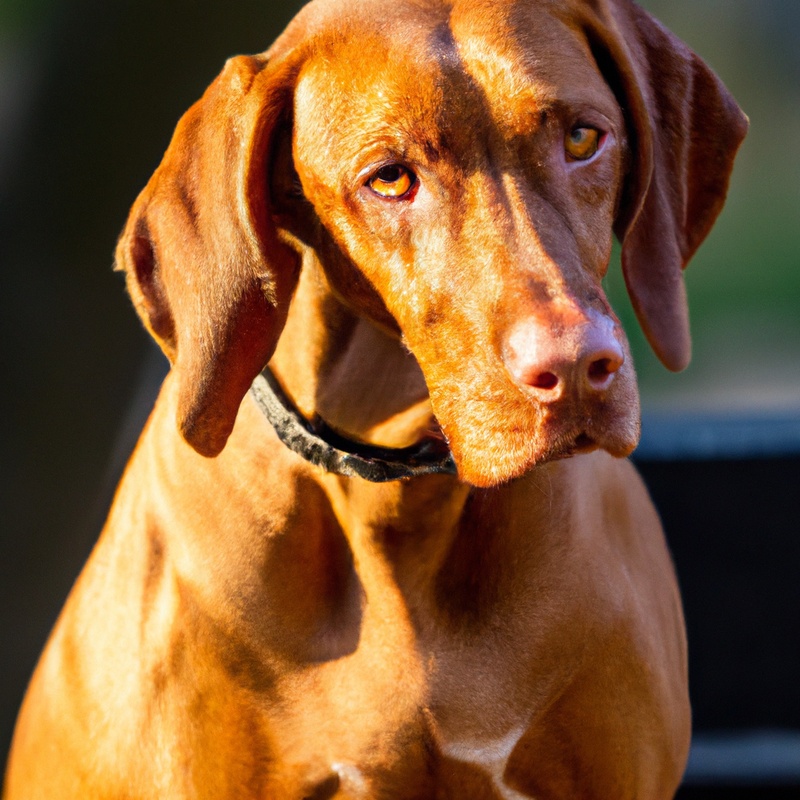
Prevention and care for Vizsla dental problems
Regular teeth brushing
Regular teeth brushing is essential for maintaining your Vizsla’s dental health.
It helps prevent common dental problems such as plaque buildup, tartar accumulation, and gum disease.
To ensure effective brushing, use a toothbrush and toothpaste specifically designed for dogs.
Aim to brush your Vizsla’s teeth at least 2-3 times a week, ideally daily.
Make it a positive experience by introducing brushing gradually, using rewards, and keeping sessions short.
Remember to be gentle and patient with your Vizsla to make it a pleasant routine for both of you.
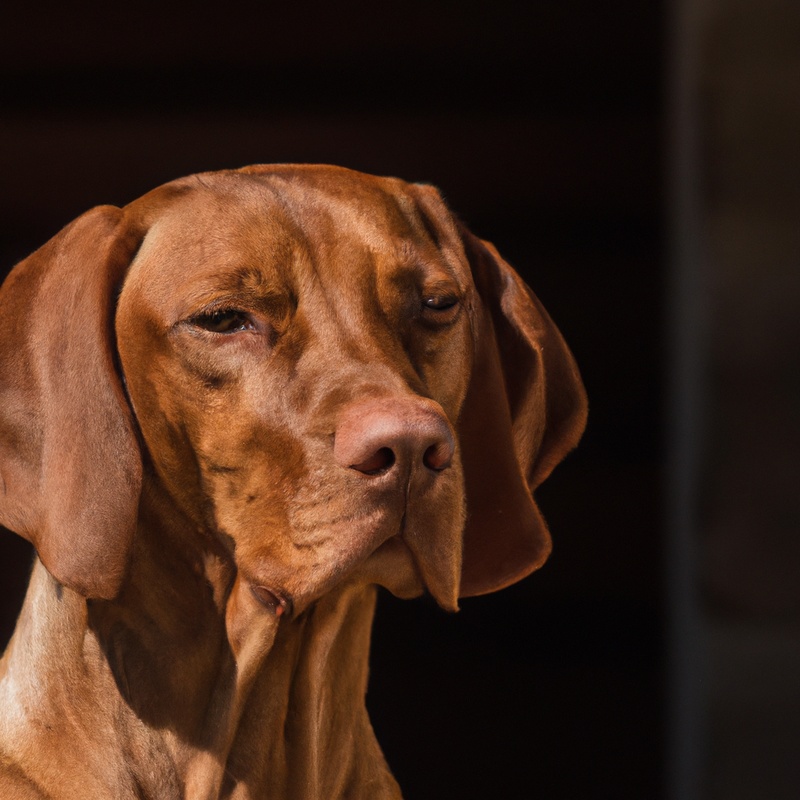
Dental chews and treats
Dental chews and treats can be a great addition to your Vizsla’s oral hygiene routine. These products are designed to help prevent dental problems and keep your dog’s teeth clean and healthy.
When choosing dental chews and treats, look for options that are specifically made for dental health.
They should be formulated to remove plaque and tartar buildup, promote fresh breath, and provide oral stimulation. It’s important to follow the recommended serving size and monitor your dog while they enjoy their dental treats to prevent any choking hazards.
Regular use of dental chews and treats, along with regular brushing, can help keep your Vizsla’s teeth in good condition.
Professional dental cleanings
Professional dental cleanings are essential for the overall oral health of your Vizsla. During these cleanings, a veterinarian will thoroughly remove plaque and tartar buildup from your dog’s teeth.
They will also conduct a comprehensive examination to detect any potential dental issues.
Regular dental cleanings help prevent the development of dental problems, such as gum disease and tooth decay. It is recommended to have professional dental cleanings done at least once a year to maintain your Vizsla’s oral health.
Healthy diet and nutrition
A healthy diet and proper nutrition are vital for maintaining the overall wellness of your Vizsla’s dental health.
Here’s what you should know:
- Feed your Vizsla a balanced diet: Ensure that their meals consist of high-quality, nutrient-rich ingredients. Opt for dog food that is specifically formulated to promote dental health.
- Offer dental-friendly treats and chews: Certain treats and chews can help reduce tartar buildup and promote good oral hygiene. Look for options that are designed to promote dental health.
- Regularly clean your Vizsla’s teeth: Brushing their teeth regularly with a dog-friendly toothbrush and toothpaste is crucial. Start brushing gradually, allowing them to get used to the process.
- Monitor their chewing habits: Keep an eye on what your Vizsla chews on to prevent them from damaging their teeth. Avoid very hard or abrasive toys that can cause tooth fractures.
- Schedule regular vet check-ups: Regular dental check-ups with your veterinarian are essential. They can identify potential dental issues early on and provide appropriate treatment.
FAQ about Vizsla dental problems and prevention
How often should I brush my Vizsla’s teeth?
To maintain good oral health for your Vizsla, it is recommended to brush their teeth at least 2-3 times per week.
Regular brushing helps prevent plaque and tartar buildup, which can lead to dental issues.
Use a dog-specific toothbrush and toothpaste to gently clean their teeth and gums.
Remember to introduce brushing gradually and make it a positive experience for your dog.
Additionally, providing dental chews and regular professional cleanings can further support your Vizsla’s dental care routine.
Can Vizslas use regular toothpaste?
Yes, Vizslas can use regular toothpaste, but it is not recommended. Regular toothpaste for humans often contains ingredients that can be harmful to dogs, such as fluoride.
Dogs cannot spit out toothpaste like we can, so it’s important to choose a toothpaste specifically formulated for dogs.
These toothpastes are usually flavored and safe for them to swallow. It’s best to consult with your veterinarian to find a toothpaste that is suitable for your Vizsla’s dental health.
Are there any foods or treats that can improve dental health in Vizslas?
Yes, there are certain foods and treats that can help improve dental health in Vizslas.
- Dental chews: Look for dental chews specifically designed to promote oral health. These chews are usually made with textured surfaces that help to remove plaque and tartar as your Vizsla chews on them.
- Raw bones: Raw bones can be beneficial for dental health as they encourage chewing, which helps to remove plaque and tartar. However, it’s important to choose the right size and type of bone and supervise your Vizsla while they chew.
- Crunchy vegetables and fruits: Offer your Vizsla crunchy vegetables and fruits like carrots, apples, or celery. The natural texture of these foods can help clean your dog’s teeth while they chew.
- Dental diets: Some commercial dog food brands offer dental diets that are formulated to promote oral health. These foods often have a specific texture or ingredients that help reduce plaque and tartar buildup.
Remember to consult with your veterinarian before introducing any new foods or treats into your Vizsla’s diet.
Regular dental check-ups and professional cleanings are also important to maintain your dog’s oral health.
How often should my Vizsla have a professional dental cleaning?
I recommend getting your Vizsla a professional dental cleaning once a year.
Regular cleanings help prevent plaque and tartar buildup, which can lead to dental issues like gum disease or tooth decay.
In between professional cleanings, you can maintain your Vizsla’s dental health by brushing their teeth regularly and providing dental chews or toys.
Remember to consult your veterinarian for personalized advice about your Vizsla’s dental care routine.
Final Verdict
As an expert in Vizsla dental health, I have highlighted the common dental problems that these dogs may face, including plaque and tartar buildup, gum disease, tooth fractures, and oral tumors.
I have also discussed the signs and symptoms to look out for, such as bad breath, swollen gums, difficulty eating, and excessive drooling.
To prevent these issues, regular teeth brushing, dental chews, professional cleanings, and a healthy diet are recommended.
By taking proactive steps and prioritizing their oral health, Vizslas can enjoy a lifetime of healthy smiles.

